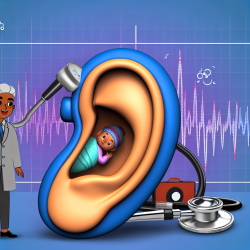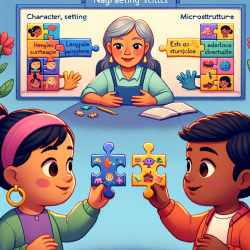Introduction
Stuttering is a speech disorder that disrupts the flow of speech through involuntary repetitions or prolonged sounds. Early intervention is crucial, especially before the age of six, to prevent persistent stuttering and associated mental health issues. A recent study titled "Treatment for preschool age children who stutter: Protocol of a randomised, non-inferiority parallel group pragmatic trial with Mini-KIDS, social cognitive behaviour treatment and the Lidcombe Program—TreatPaCS" explores the effectiveness of three treatment programs: Mini-KIDS, Social Cognitive Behavior Treatment (SCBT), and the Lidcombe Program.
Research Overview
The study aims to compare the effectiveness of these three programs in treating preschool children who stutter. It involves 249 children randomly assigned to one of the treatment groups. The primary focus is on achieving near-zero levels of stuttering and fostering a positive attitude towards speech within 18 months. The study also compares the treatment duration required to reach these goals.
Key Findings
- All three programs are expected to achieve similar outcomes in reducing stuttering and improving speech attitudes.
- The Lidcombe Program and Mini-KIDS, which focus directly on speech, may require less treatment time compared to SCBT, which addresses cognitive and emotional aspects.
- The study's results could significantly impact families and healthcare systems by providing insights into the most efficient treatment methods.
Implications for Practitioners
Practitioners can enhance their skills by understanding the nuances of each treatment approach. The Lidcombe Program, with its operant conditioning framework, offers structured feedback on speech fluency. Mini-KIDS focuses on speech modification through pseudo-stuttering, while SCBT emphasizes emotional and cognitive conditioning.
Understanding these approaches allows practitioners to tailor interventions based on individual child needs and family dynamics. Moreover, the study highlights the importance of early intervention and continuous monitoring to prevent the progression of stuttering.
Encouraging Further Research
This study opens avenues for further research into the long-term effectiveness of these treatments and their impact on children's social and emotional development. Practitioners are encouraged to stay informed about ongoing research and contribute to the growing body of evidence-based practices in stuttering treatment.
Conclusion
For practitioners working with preschool children who stutter, this research provides valuable insights into effective treatment strategies. By implementing these findings, practitioners can improve their intervention techniques and contribute to better outcomes for children.
To read the original research paper, please follow this link: Treatment for preschool age children who stutter: Protocol of a randomised, non-inferiority parallel group pragmatic trial with Mini-KIDS, social cognitive behaviour treatment and the Lidcombe Program—TreatPaCS.










